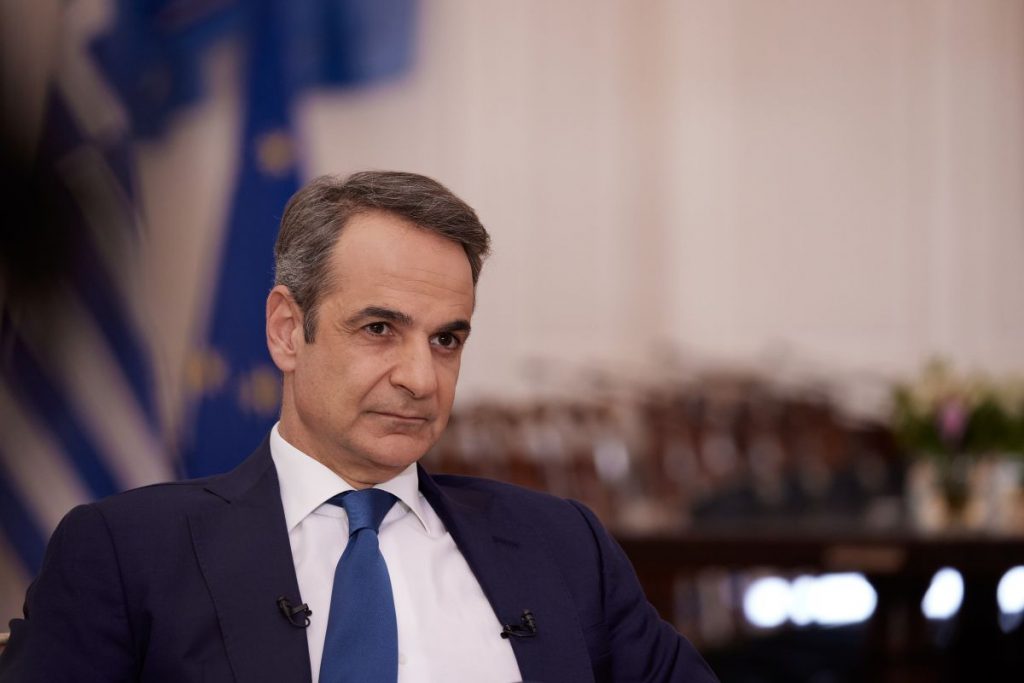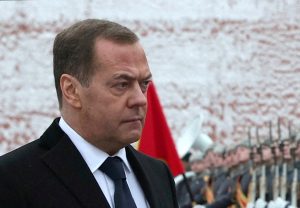North Macedonia’s newly-elected president, Gordana Siljanovska-Davkova, sparked a diplomatic crisis on Sunday when she deviated from the official text of the oath, which was read to her during a swearing-in ceremony, repeating only “Macedonia” instead of North Macedonia.
The Greek ambassador to the Republic of North Macedonia, Sofia Filippidou, who had been invited to the parliamentary session for the swearing-in of Siljanovska-Davkova, left in protest against the use of the stand-alone “Macedonia”, which is a violation of the Prespa Agreement.
According to the Prespa Agreement, the Former Yugoslav Republic of Macedonia (FYRoM) is obliged to change its name to the Republic of North Macedonia.
In return, Greece recognizes the country as Republic of North Macedonia and ceases blocking its accession to NATO and the European Union.
The agreement was facilitated by the United Nations and signed by the then foreign ministers of the two countries, Nikola Dimitrov and Nikos Kotzias, in the presence of the Prime Ministers of both countries. It was ratified by the parliaments of both countries and came into force on Feb. 12, 2019.
The debate over nomenclature has deeply-rooted historical, ethnic and geographical elements, and is considered by some to have started in 1991, but has a longer history and was a backdrop of more than a century of tension and instability in the southern Balkan region.
Back in 2019, the incumbent Greek government but then political opposition, New Democracy party, was against the signing of the agreement. The Prespa Agreement was signed and implemented at the time by the mostly left-wing SYRIZA coalition government, which was led by former Prime Minister Alexis Tsipras.
Diplomatic Reactions
The development on Sunday generated a swift and stern reaction from Greek Prime Minister Kyriakos Mitsotakis via social media, as he warned the neighboring country’s president that Greece “will not tolerate similar slips” in the future.
Additionally, the Greek Ministry of Foreign Affairs issued a statement saying that the use of the name “Macedonia” blatantly violates the Prespa Agreement, as well as the constitution of North Macedonia, and emphasized that this violation endangers the EU-candidate country’s accession to Europe.
The text of the official statement, found on ministry website, reads as follows:
“During today’s swearing-in ceremony in Parliament, and in spite of the fact that the official text of the oath that was read out to her referred to the country as ‘North Macedonia,’ the new President of the Republic of North Macedonia, Gordana Siljanovska-Davkova, chose to call her country ‘Macedonia.’
This act is a flagrant violation of the Prespa Agreement and the Constitution of our neighboring country, which has been brought into line with North Macedonia’s international obligations. In spite of the objections it voiced as an opposition party during the ratification of the Prespa Agreement, the current Greek government respected as ratified the international agreement, which overrides any other provision of law.
In this context, Greece categorically states that further progress in its bilateral relations with North Macedonia, as well as progress in the latter’s European course, depends upon the full implementation of the Prespa Agreement and principally the use of the country’s constitutional name.”
Other European leaders chimed-in as well, through social media, with the President of the European Commission Ursula von der Leyen making a statement on X along the same lines. She said:
For North Macedonia to continue its successful path on EU accession it is paramount that the country continues on the path of reforms and full respect for its binding agreements, including the Prespa Agreement.
— Ursula von der Leyen (@vonderleyen) May 12, 2024




